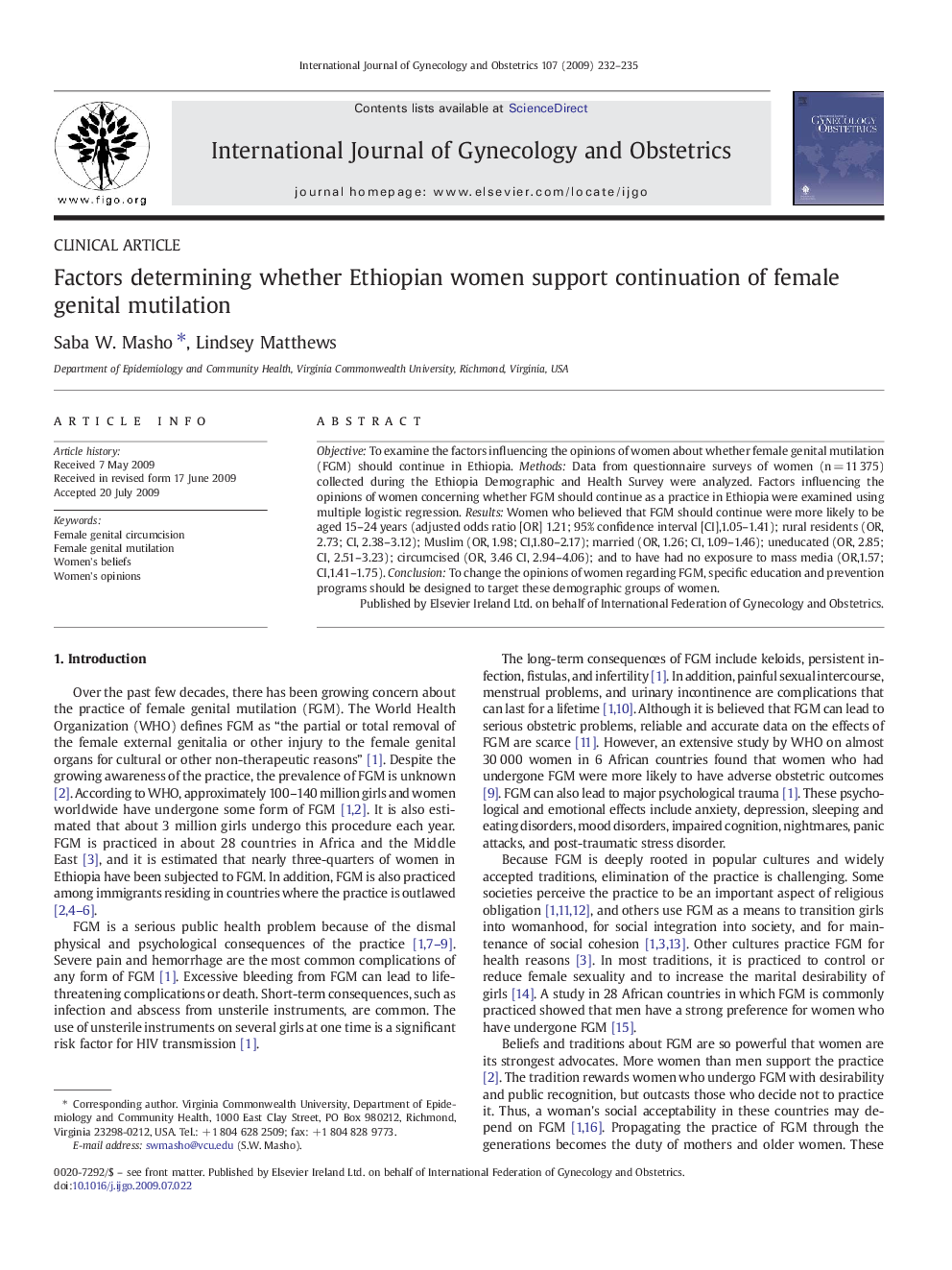| Article ID | Journal | Published Year | Pages | File Type |
|---|---|---|---|---|
| 3953737 | International Journal of Gynecology & Obstetrics | 2009 | 4 Pages |
ObjectiveTo examine the factors influencing the opinions of women about whether female genital mutilation (FGM) should continue in Ethiopia.MethodsData from questionnaire surveys of women (n = 11 375) collected during the Ethiopia Demographic and Health Survey were analyzed. Factors influencing the opinions of women concerning whether FGM should continue as a practice in Ethiopia were examined using multiple logistic regression.ResultsWomen who believed that FGM should continue were more likely to be aged 15–24 years (adjusted odds ratio [OR] 1.21; 95% confidence interval [CI],1.05–1.41); rural residents (OR, 2.73; CI, 2.38–3.12); Muslim (OR, 1.98; CI,1.80–2.17); married (OR, 1.26; CI, 1.09–1.46); uneducated (OR, 2.85; CI, 2.51–3.23); circumcised (OR, 3.46 CI, 2.94–4.06); and to have had no exposure to mass media (OR,1.57; CI,1.41–1.75).ConclusionTo change the opinions of women regarding FGM, specific education and prevention programs should be designed to target these demographic groups of women.
